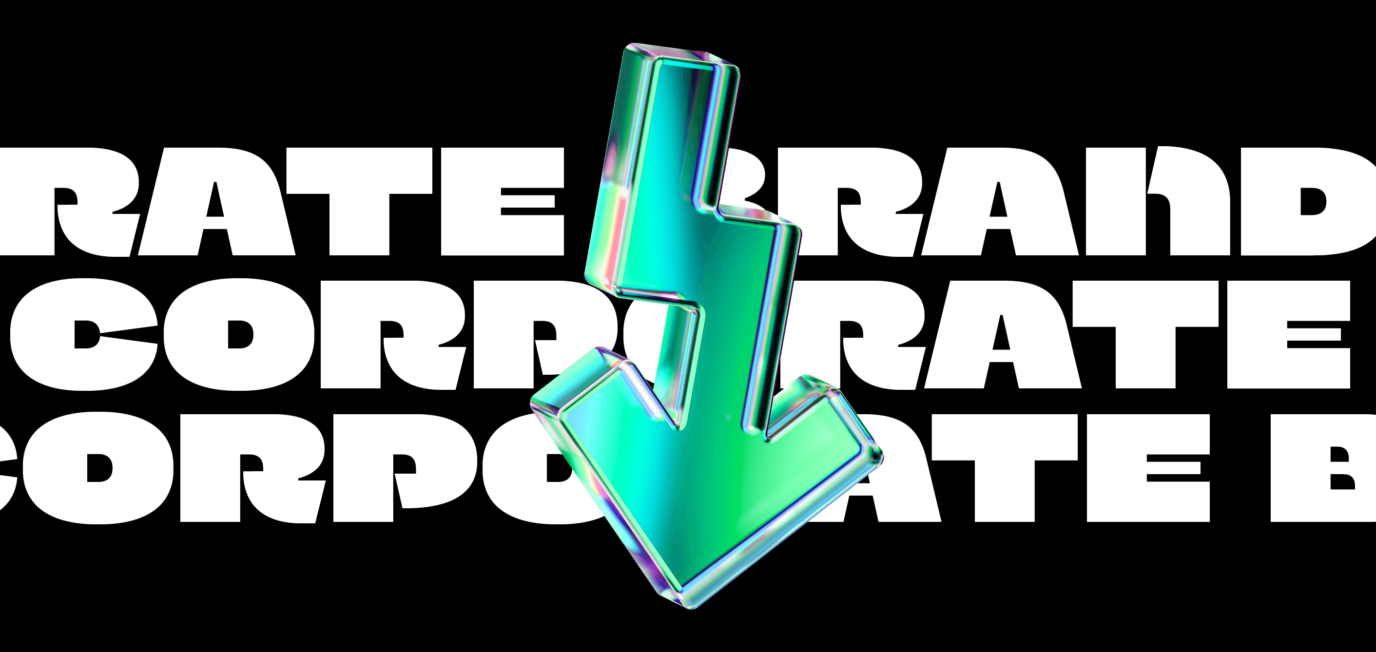
AUTHOR: THOM NEWTON
READ TIME: 4 MINS
In times of uncertainty, we look to brands for a sense of stability and reassurance. Global CEO Thom Newton outlines why investment in the corporate brand has never been more critical.
When times are tough and the economic outlook is uncertain, our natural inclination is to hunker down and wait for the storm to pass. But economic uncertainty – and natural inclination – is no reason to shy away from brand investment. Quite the opposite: building a strong brand is a proven way of minimising risk, growing share of voice and gaining market share.
Gloomier periods in history provide the evidence: a 2010 study found that US brands that invested in advertising during the 1989-91 recession emerged stronger than those that cut back. More recently, Nielsen reported that businesses that continue to build their brands when others pull back can gain the advantage – a phenomenon known as ESOV (excessive share of voice), which ultimately leads to increased market share.
Investor Warren Buffett, who has weathered many a storm himself, is of the same mindset. In his oft-quoted 1986 chairman’s letter, he wrote: ‘We simply attempt to be fearful when others are greedy and to be greedy only when others are fearful.’ While Buffett’s focus was market investment, the subtext is clear: in a climate where most cut back, competitive advantage can be gained when you buck the trend – and invest.
So why is brand building so critical during periods of uncertainty? Time and again, we see consumers and businesses looking to brands for a sense of stability, reassurance and belonging. It shouldn’t come as a surprise: when the outlook is uncertain, we seek out the familiar, and are drawn to brands that have the confidence to stand tall and stand firm, despite economic headwinds.
“Those who continue to build their brands when others hold back can gain the advantage.”
Why the corporate brand is such a powerful asset
The corporate brand, as well as being a powerful tool to influence perceptions both internally and externally, can be a vital asset for driving overall business strategy and performance. In truth, its benefits are far-reaching and profound.
- It provides clear direction and purpose
A strong corporate brand functions as a north star, clarifying and articulating why the business exists as well as setting a clear direction that unifies and guides every aspect of the business. - It supports strategy and value creation
When truly aligned with and exemplifying business strategy, it helps not just communicate, but successfully deliver on, strategic objectives. - It signals change and transformation
Whether it’s a change in leadership, structure (including divestments, mergers and acquisitions) or a change in outlook or ambition, the corporate brand supports business change and transformation. - It addresses sustainability and showcases impact
In its alignment with the sustainability strategy, it helps demonstrate and communicate sustainability credentials, ambitions and outcomes in a credible and engaging way. - It creates a ‘shield and halo’ effect
Strong corporate – or master – brands play a dual role: they’re able to protect (or shield) sub-brands from criticism in difficult times, while elevating entire portfolios when one brand is experiencing positive momentum. - It helps attract and retain talent
Employees who are proud of the company they work for will be better engaged and more powerful advocates of the brand externally.
Sitting above the fray of in-category competition, your corporate brand is the north star to which everyone – shareholders, stakeholders, consumers and talent – turns. It unites your business and gives your audience a reason to trust and believe. And its power as a business asset should not be underestimated.
“Strong corporate brands function as a north star, clarifying and articulating why the business exists.”
How Reckitt and Danone are benefiting from corporate brand investment
One example of corporate brand potency involves multinational consumer goods company Reckitt. Back in 2020, its CEO decided it needed to invest in a rebrand. The goal was to give the 200-year-old business the opportunity to change how it expressed its purpose and connect its vast array of products.
While Reckitt brands – household names like Dettol, Durex and Veet – are trusted by millions worldwide, there was less awareness of the company behind the brands. The new Reckitt identity enabled the business to more powerfully communicate its corporate purpose – to protect, heal and nurture in the relentless pursuit of a cleaner, healthier world – and do so in a way that was both consistent and impactful.
A similar objective was at the heart of our work for Danone: responding to a changing market, it wanted to capture its commitment to health and nutrition, and better convey its re-articulated mission and vision: ‘One Planet. One Health’. This position was brought to life through a refreshed global brand that reflected a more human, inclusive and forward-looking business.
So the research is unequivocal: bolstering your corporate brand can give your business a clear competitive advantage – long after the passing of the storm.
When it comes to brand investment, those who dare really do win.



